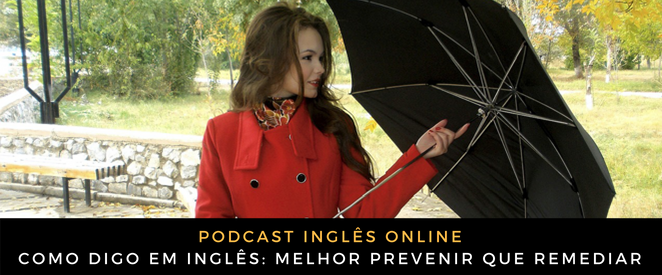“did make me realise” tryng to say “me fez perceber”, Is that correct?
Hi Ana! I have to tell you I’ve been outta here for a while… then I saw you request and that did make me realise how your posts help me to learn more. I’m not gonna say that’s “better than nothing”, cause it’s better than many other things kkkkk.
By the way let me ask you something, It’s not about these expressions but it’s about some phrases that I saw among the coments, and brought some doubts, let’s go…
“go by riding mine motorcycle” – I tought it was “go by motorcycle” or “go riding my motorcicle”
” near 7:30 am ” – I tought it was ” 7:30 am” because I’ve learned that this “near” we can use for places, locations etc.
And finally… “among” can be used for only two things, I mean, between two things.
And I really want you to correct the writing mistakes here in my coment too, please.
Thank you! See you soon!
Hi Thiago – sim, algumas coisas que vc notou estão corretas. Eu não corrijo tudo que postam aqui… às vezes, quando dá, faço isso, mas com certeza não corrijo tudo que postam nos comentários, OK?
Hello Ana !!!
Every year I make a check up in my body. I guess it is better safe than sorry and I always recommend to my friends to work out . A simple walking in the park is better than nothing
yep, a simple walk in the park is better than nothing… definitely!
Eu adoro todas suas dicas, e-mails, etc. Sua pronúncia é ótima! consigo entender tudo. Sempre que tenho a oportunidade , indico aos meus amigos.
Hello guys, better later than never, let-me write something about it. I go out home every day to work near 7:30 am and work to 8:00 from 18:00 pm with a luchtime after noon. I aways go by riding mine motorcycle but I don’t like plastc clothes that protect againt rain. I know that better safe than sorry, but I look around the sky and when I see the clouds and the sun I think today won’t rain, lol. So I take an umbrella with me, even though the distance among the local job and mine home is near, so in case began raining, I can go by bus and can using the umbrella, better than nothing. Last but not least, I have a lot of friends that like to conversations and they often spend your luchtime with things usually don’t matter, they ask me why I don’t participate of the group and reply them I’ve got better things to do.
Thanks Ana.
hehe… Congrats, Diogo. Bacana o uso das expressões.
Adoro as dicas Ana, parabéns..
See you!
KISSES…
My English is getting better day by day because of you
Hi Ana!
I love your podcasts! Thanks for your help!
Marcio
That’s how We learn English! A word here, another word there ! Thank you very much for the classes !
Parabéns por mais este belo post. Super util. Vou procurar usa los, como tb comentar mais, agora melhor orientado sobre a importancia dos comentarios. Abs.
Hi, Ana! I read this post yesterday and I used it in the same day!
You know, the weather it’s crazy here in São Paulo these days, and I always bring my umbrella with me. We never know when will rain. So, better safe than sorry, right?
I confess that I’m just writting this comment now because you asked for a few minutes ago, but I promisse that I will comment more often from now on.
I love your site and I think that is a great work you’ve been doing here.
Thank you very much.
Hi Marcelo
Like you, I live in Sampa so I know exactly what you’re talking about.
I’ve been surprise by sudden rain more than once, so nowadays I (usually) remember to have my umbrella on me at all times when I’m out.. during the rain season, of course – Jan/Feb/Mar
Hi, Ana!
I’m reading a book in English called “Final Justice” written by Fern Michaels and I saw this expression “It will do” in it.
It makes me remember your post.
Thanks for the useful tips.
So cool, Débora!!
So about this book – Thumbs up, or too soon to tell?
What does thums up word means?
Olá,
adorei o post!!
Escrevo para o blog Ensino Bilingue e, por lá, tem uma matéria super interesante sobre as expressões em inglês.
Dê uma olhada!!
Abs
Muito Bom!!! Parabens Ana Luiza! :)
“Better alone than in bad company.” Is not among the examples given in the text, but it would often be used by me if I was speaker of English.
Hello – each podcast is limited to 2-3 expressions..


